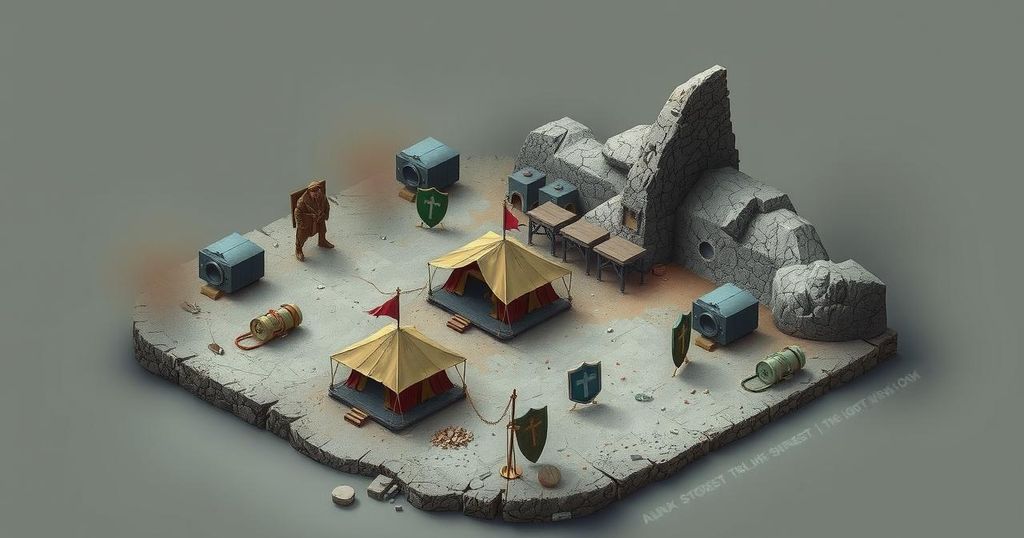Rwandan-backed M23 rebels have captured territories in eastern DRC, prompting President Tshisekedi to mobilize military recruits. The conflict escalates with concerns over Rwandan involvement and accusations of resource exploitation. International calls for restraint have had little effect, raising fears of a broader security crisis in the Great Lakes region.
Rwandan-backed M23 rebels have gained ground in eastern Democratic Republic of the Congo (DRC), raising concerns as local sources reported the seizure of two districts in South Kivu province. Despite international calls for restraint, the situation remains precarious as the rebels advance towards the provincial capital, Bukavu, seemingly without significant resistance.
In a late-night address, Congolese President Félix Tshisekedi urged the young population to enlist in the military, promising a decisive response to the ongoing rebel threat. The situation escalated following the takeover of Goma in North Kivu province, which is a critical hub for displaced individuals and a key battleground since 2012.
Congo’s defense strategy now hinges on the city of Kavumu; should the rebels breach this line, Bukavu would be at risk. Many Congolese soldiers who fled Goma have sought refuge in Bukavu, intensifying fears of further territorial losses in the ongoing conflict.
During his address, Tshisekedi condemned the international community’s “silence and inaction,” expressing concern for the deteriorating security situation that could exacerbate regional instability. He called on citizens, particularly the youth, to join military efforts, emphasizing their role as protectors of the nation.
Reports indicate that M23 rebels are receiving substantial support from an estimated 4,000 Rwandan troops, thereby underscoring a heightened escalation compared to incidents in 2012. The involvement of Rwanda has drawn international scrutiny, with officials from the United States, Germany, and the United Kingdom expressing concerns over Rwanda’s role in exacerbating the conflict.
Rwanda continues to assert that its military actions are aimed at neutralizing the DRC-based FDLR group, which has historical ties to the Rwandan genocide. Tshisekedi has declined participation in an emergency East African Community summit, where leaders advocated for peace talks and a ceasefire, revealing a rift in diplomatic efforts to resolve the crisis.
The DRC, rich in valuable minerals such as gold, cobalt, and tin, stands at the center of these tensions, with Congo accusing Rwanda of exploiting the region’s resources amid the conflict. Kigali denies all allegations of military intervention, maintaining that its involvement is strictly defensive against the FDLR.
The ongoing conflict in the Democratic Republic of the Congo is deeply rooted in historical tensions, exacerbated by the Rwandan genocide and subsequent refugee crises. The M23 rebel group, which has been linked to Rwanda, has consistently sought to assert control over eastern DRC, a region rich in natural resources. The international community has increasingly focused on the role of external actors, especially Rwanda, in fueling instability through military support for rebel factions in the DRC, raising questions about the geopolitical implications of these conflicts for the broader Great Lakes region.
In conclusion, the situation in eastern DRC is dire, marked by aggressive advances of Rwandan-backed M23 rebels and the potential for significant territorial changes. President Félix Tshisekedi’s call for military enlistment highlights the urgent need for national defense amidst an escalating conflict. The international community’s response may play a critical role in shaping the future of peace and security in the region, as accusations against Rwanda continue to mount. Without a united diplomatic effort, the conflict is likely to deepen with wide-ranging consequences.
Original Source: www.theguardian.com




